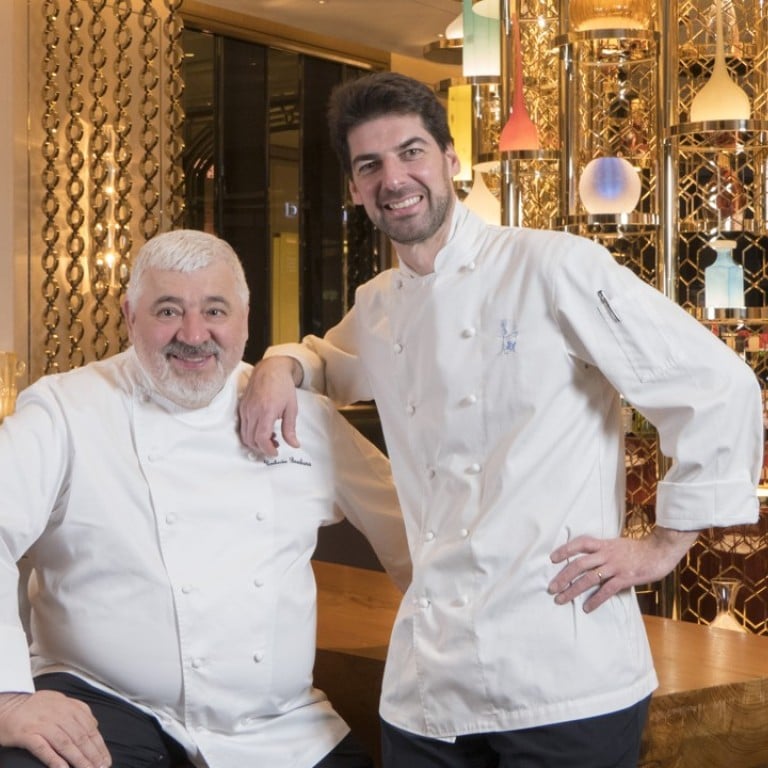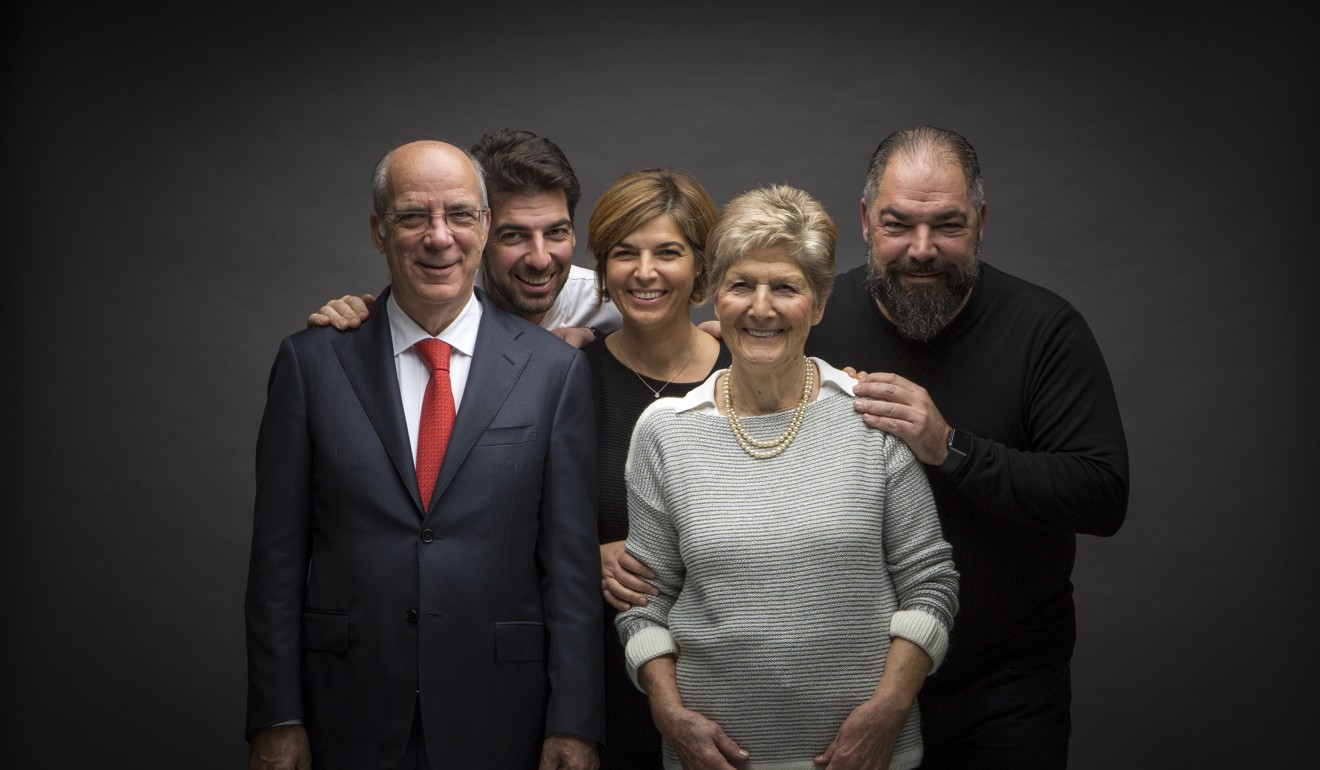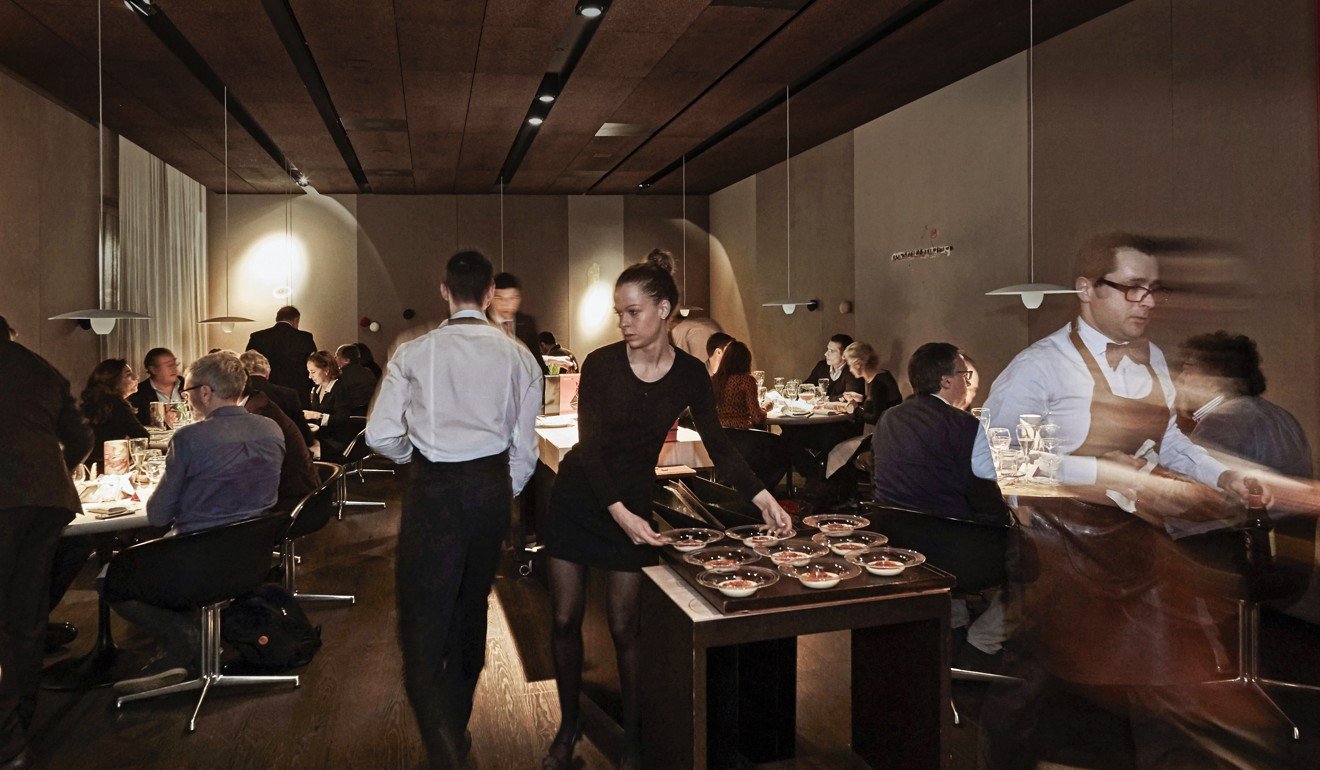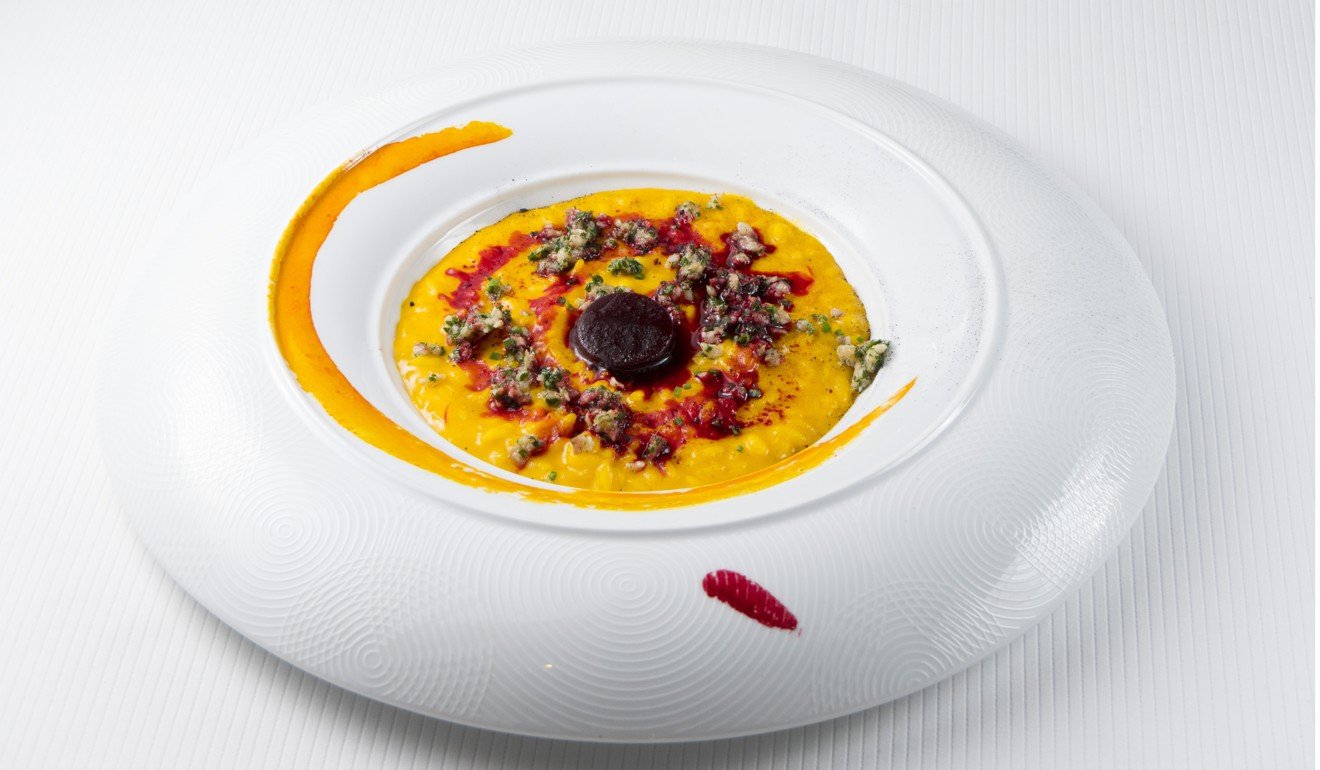
Top Michelin-starred Italian chef on pineapple pizza controversy and running the family business
At 28, Massimiliano Alajmo became the youngest chef to win three Michelin stars. He was recently in Hong Kong to collaborate with Umberto Bombana at 8½ Otto e Mezzo
Is it true that you don’t like to travel? “I do like to travel, but if I said yes to every request, then I wouldn’t be able to spend time in my own kitchen. We have almost 10 outlets now, so that alone takes up most of my time. My main focus is Le Calandre [the family’s three-Michelin-star restaurant in Padua, Italy], which is my research laboratory. When I do travel, I go for very specific reasons. In fact, I worked in Japan for two years, and I’ve also worked in Taipei and Singapore.”
What does tradition mean to you? “Most people think it is something to follow, a constant, but I think tradition is something that gives and provides. Tradition gives me new ideas. Real tradition is not something you see or feel. You gain and absorb without realising it. I can make tomato spaghetti with a modern method and not follow tradition, or I can put chocolate in a spaghetti and it could be very traditional.”
If you give me a justification [to eat pineapple pizza], a reason why you want to do this controversial thing, then I will try. If it is good, then why not?
What was it like growing up in the family restaurant business? “My mother was my first master. She ran the restaurant kitchen until the mantle was passed to me. It was always my dream to work with my family.
“I was 19 when they gave me the keys to the restaurant. My parents said, ‘Here you go. We’re going to open another restaurant.’ I replied, ‘Sorry, but I don’t feel I am ready.’ My dad responded, ‘When I was 20, I had 60 staff under me. You at 19 can’t supervise three cooks?’ I couldn’t argue any more.”

What did it mean to get three Michelin stars? “It helped cultivate different customers, who come and see what you can really do. That could only happen with the Michelin stars. It allowed us to grow and pushes us to keep going.”
Is it more difficult to master skills and techniques than be creative? “They are totally different areas that you can’t really compare. You must know techniques but sometimes you need to forget about them. They are not heart and poetry. If you stay within that realm then you cannot go beyond. You have to listen to the ingredients. They reflect the sense of life in microcosm and macrocosm.”

Where do you find inspiration for new dishes? “Most times, the ingredient itself gives direction. Sometimes it’s the situation, ambience or feeling that gives you a spark. In the end, it’s always based on the produce and the way they connect to each other. They give me signs of which way to go. I get a lot of inspiration from other chefs, too. Even from my young guys.”
You must know techniques but sometimes you need to forget about them. They are not heart and poetry
What did you learn from your time in Asia? “I feel a lot of affinity between Asian and Italian cooking. I’ve studied Japanese and Chinese cuisines, and both are ancient cuisines that maintain their own identity. Yet I can relate to them.
“For example, Japanese tempura is exactly like Italian fritto misto. They just use different techniques. Japanese cuisine is more scientific and formal. When you compare the two styles, it’s like exploring human history: how over centuries they develop differently but are similar. It shows we’re all connected.”

As an Italian, would you eat pineapple pizza? “If you give me a justification, a reason why you want to do this controversial thing, then I will try. If it is good, then why not?
“I understand it’s a provocation. I am open to trying new things but it’s not really within my sense of pizza. If you ask if I prefer a pineapple or marinara pizza, I would say marinara because this kind of flavour is part of my history and memory.”

